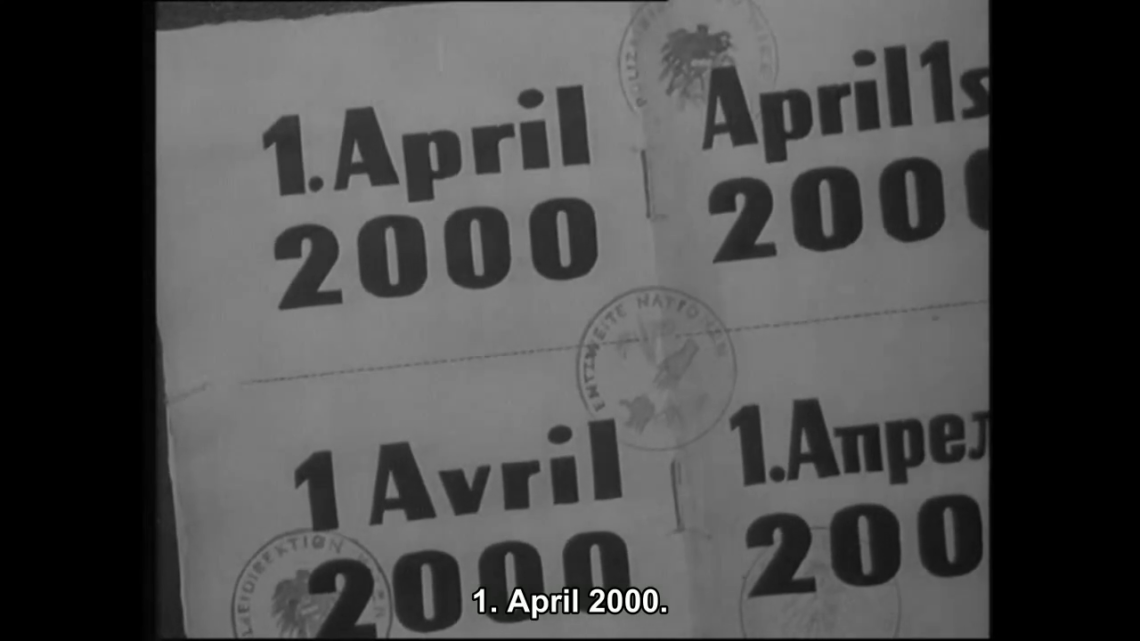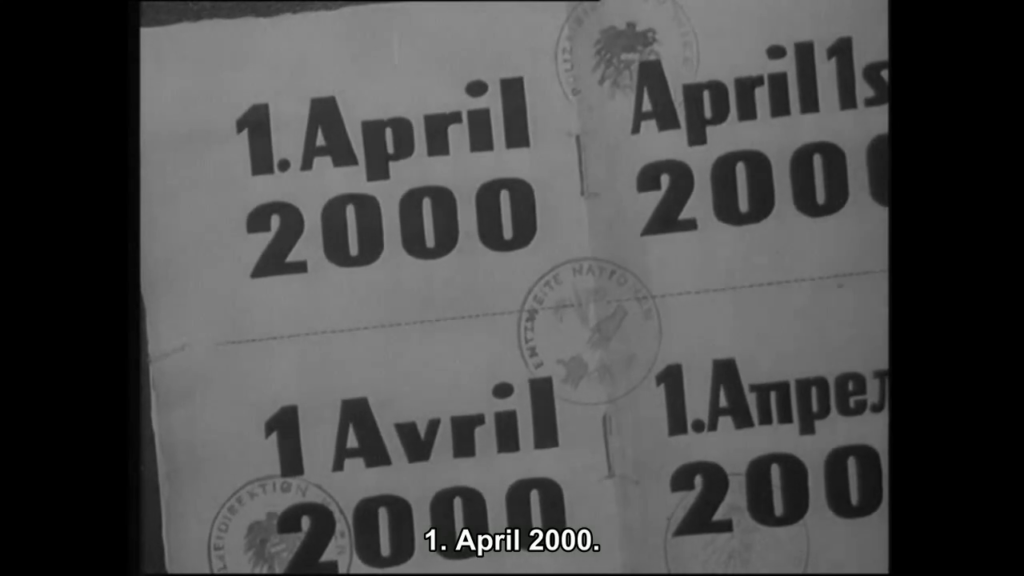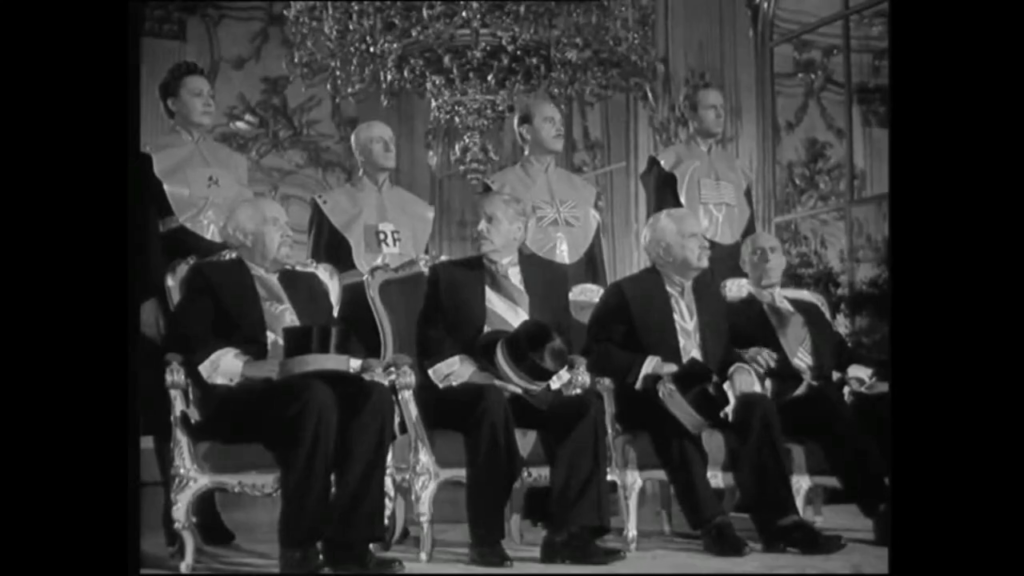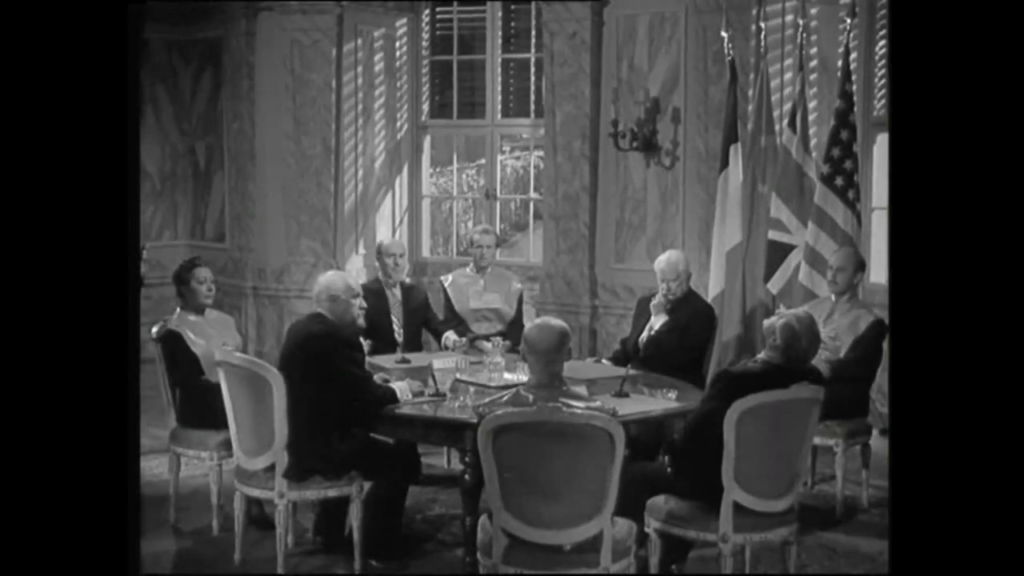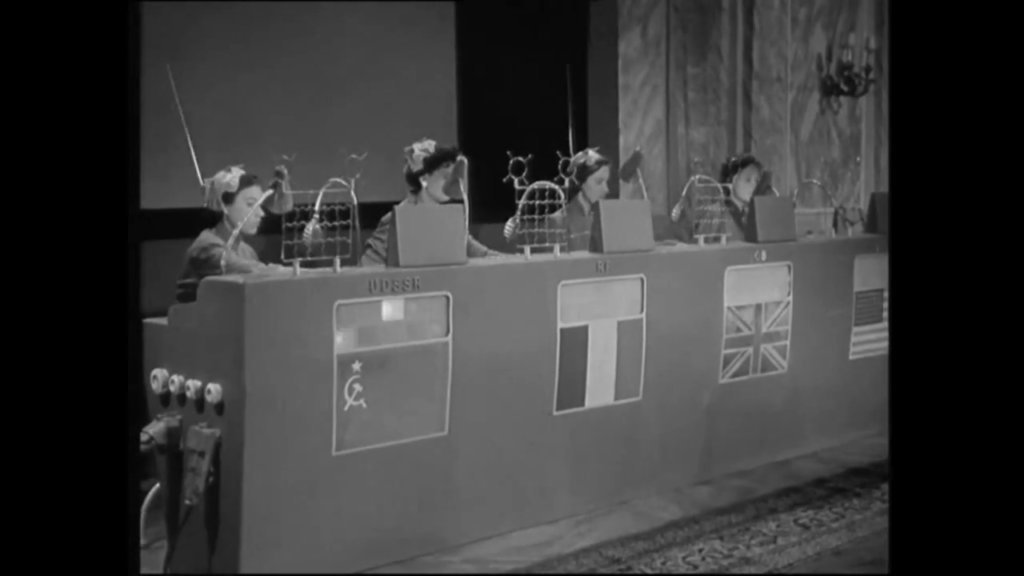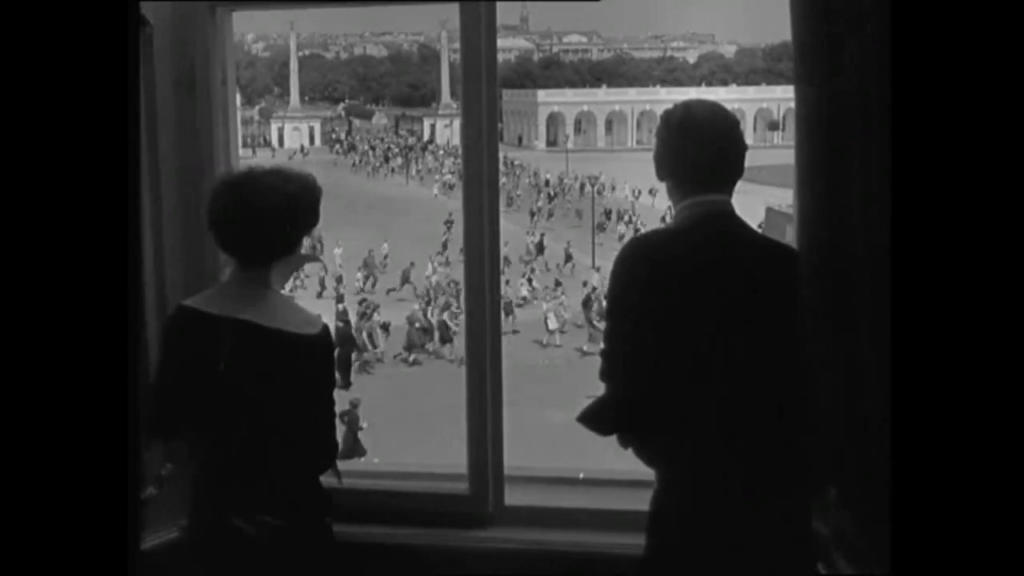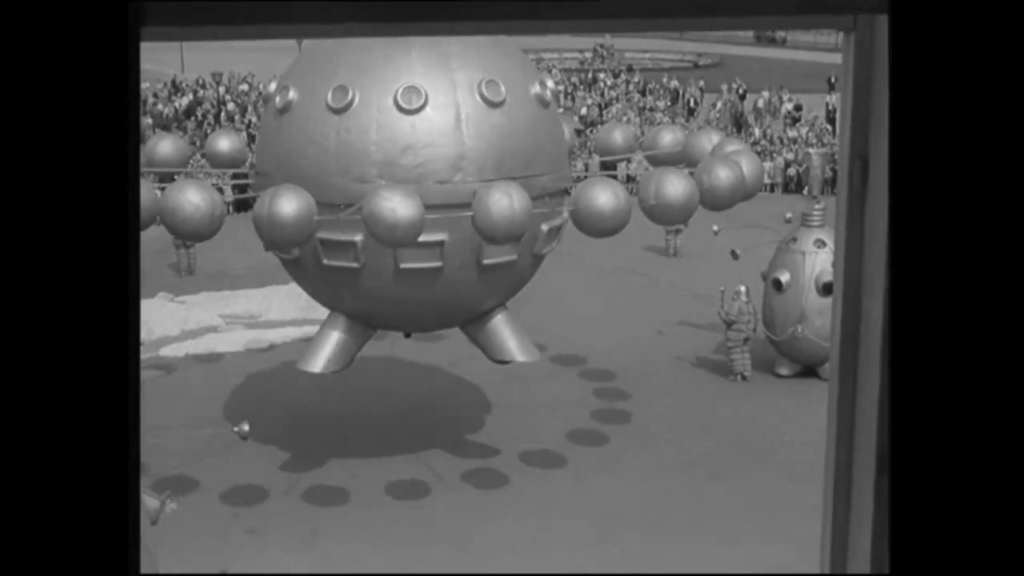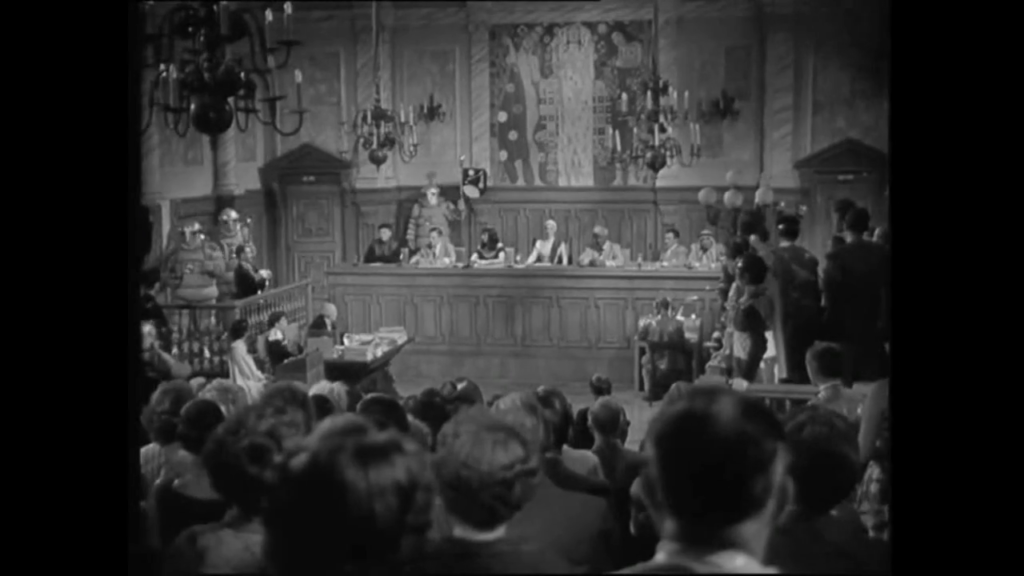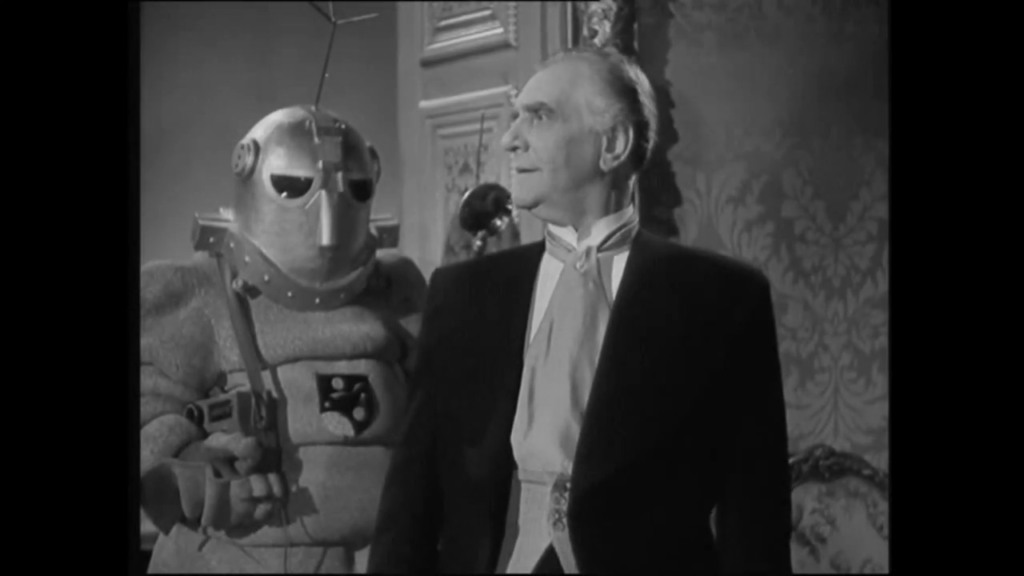-
#352 – 1. April 2000
1. April 2000 (1952)
Film review #352
Director: Wolfgang Liebeneiner
SYNOPSIS: In the year 2000, the newly elected Austrian Prime Minister declares that the country will no longer be making payments to the World Union and declares its independence of the Allied forces that have overseen it after the end of the second world war. This brings down the wrath of the World Union, whose president sees them as a threat to world peace and arrives in Austria in order to put the Austrian Prime Minister on trial that very crime. He defends himself by showing the World Union that he is no threat, and that the rich cultural history of Austria is a legacy of peace and unity.
THOUGHTS/ANALYSIS: 1. April 2000 is a 1952 Austrian sci-fi political satire film.The film takes place – as the title suggests – in the year 2000, some forty eight years after the film was released, and sets the scene as a possible future based on the (then) current situation in the world following the second world war. The backstory being that Austria, having been a part of the alliance that lost the war, were subject to oversight from the winning alliance and had to make reparations to them. The film opens up with a newly elected Austrian prime minister announcing that he is refusing to pay anymore reparations to the World Union (a not-so-subtle parody of the United Nations), and is declaring Austria independent of the allied powers of the U.S., U.K., Germany and the USSR and their oversight. The citizens are overjoyed at this, but this act of rebellion does not go unnoticed at the World Union, and they have sent their troops and president to “maintain peace.” They put the prime minister on trial, accused of disrupting world peace, and he must defend himself and his country by showing the World Union that they simply wish to be free, and present no threat. This is done through showing the various achievements in Austria throughout history, and its value in the larger world. The film goes through the various stages of this trial, with the prime minister showing evidence that acts as a historical lesson for the World Union and the viewer. The message of the film is rather plain to see, even if it is set in the future: that there is no need for the allied powers to occupy and oversee Austria to prevent another world war, and it is a country that simply needs to be free…and this is as true in 1952 as it is in the speculative year 2000. All the arguments made in the film could be made for the time that the film was made, but the setting of the future shows that there could really be no end to the reparations and oversight, and there is no ideal time at which it should be stopped, so it should be ceased immediately. The film’s strength lies in its informative message, while still managing to be entertaining, with an interesting cast of characters, and the almost haphazard approach of the prime minister creating his defence with no time to plan further shows that their is no grand scheme or plan in his head, just the simple idea of freedom for his country.
The setting of the year 2000 is a future filled with super fast rockets for travel, laser guns and ridiculous headgear for TV camera crews…but apart from that nothing seems vastly different in this future. This may be because Austria cannot afford any new technological advances under its oversight, or simply that the film is focused more on showing Austria’s past, and so it being too futuristic would distract from that. Either way, these futuristic elements are shown to do nothing to fix the basic problems that the film is trying to address. For example, when the World Union’s rocket is heading for Austria with its troops, they accidentally go to Australia instead, which shows their lack of consideration or interest in those countries it is leaving behind technologically, as well as a typical bureaucratic blunder people can make. The effects for the spaceships are quite well done, as they land around Austria’s cultural landmarks it gives it a real sense of authenticity. On the other hand, an element that hasn’t aged well at all is having all the different representatives of the countries of the world (black, Arab, Chinese) all being portrayed by white actors, which doesn’t really look good.
The satirical nature of the film means that a lot of the content is not too be taken too seriously, nevertheless there is a serious message that the Austrian government (who funded the film) wanted to project: that they were a legitimate country with a rich history, and should be taken seriously. Some of the plans of the prime minister include putting on plays and composing songs to persuade the World Union members to give Austria its independence, all of which are executed in a comedic manner that you can’t really take too seriously. The plot does go all over the place, and the ending makes the whole trial redundant anyway, which further emphasises the satirical, comedic aspect. Overall, 1. April 2000 is an interesting film that is informative, satirical and is a protest at the then current state of affairs through a science-fiction lens. While there is a serious message, it is wrapped up in theatrics, silly looking futuristic technology and ad-hoc schemes that are entertaining to watch while also not diluting the historical figures and events that it shows. Some of the dialogue and characters are outdated, and the story feels very loose in places, but again, overall it is an interesting look at a time where the world was rebuilding, and how the future might unfold without anything really changing.
